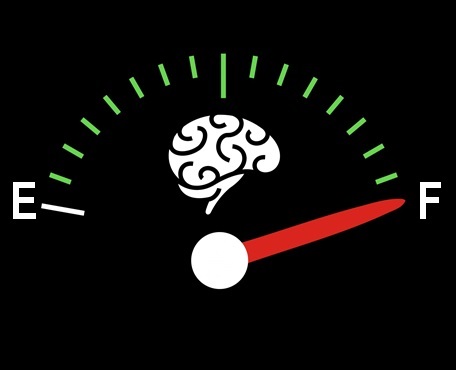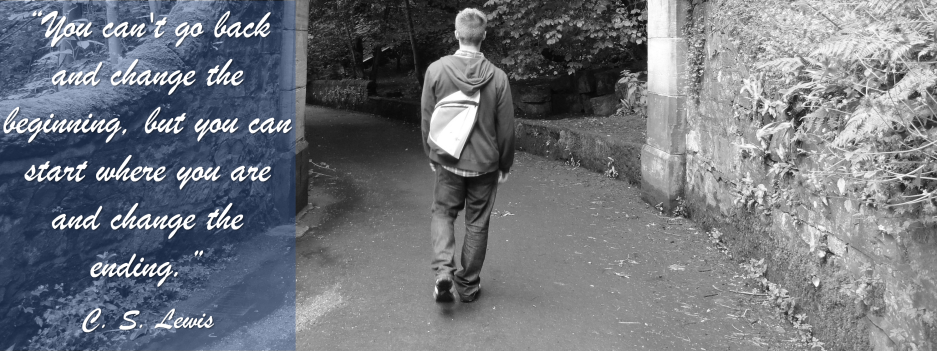Header image credit: me // Featured image credit: Keegan Houser (freely available via Unsplash)
Mindfulness. It’s a word that’s been thrown out a lot in recent years. But what exactly is it? What does it entail? What does it do? Why is it so popular? Is it just another fad, popular now, only to fall off when we realize there’s actually nothing to it. If you just want quick, to-the-point answers, here you go, in order: a practice that can be trained; potentially many different things; great things for mental and physical health; likely due to the fact that it works; and no. If you want more detailed answers, read on.
Present Awareness
In its simplest form, mindfulness is that act of being mindful—that is, being aware. This can be as perceptually simple as noticing the feel of your feet on the floor or feeling the air fill your lungs as you breathe or listening to the sound of the ambient noises around you. Or it can be as introspective as noticing what thoughts and feelings you’re experiencing (a phenomenon that psychologists call metacognition: the act of thinking about thinking). Or it can even be some kind of blend of the two, like getting enraptured by the awe and beauty of the intricacy of trees or the colors of a sunset or the lush sounds of a symphony. Or it can be a focus on investing in the process rather than the outcome.
Srikumar Rao argues in his TED talk that this focus on the process is the key to tapping into our hard-wired happiness. Yes, you read that correctly: happiness is hard-wired into our brains. Happiness is what happens when we let all of the other distractions and worries get out of the way and we allow ourselves to be in the present. As different as they are, that is what all these experiences—mindful breathing, metacognition, watching a sunset, listening to a symphony, focusing on the process—have in common: being present. And that, I would argue, is the key to so many of the benefits of mindfulness. So, in short, mindfulness entails presence. It is being mindful. It is having a full mind, allowing your mind to be filled with the sights and sounds and feelings of the world around you—or even within you. And by allowing your mind to be filled with the experiences of the present, you’ll likely find that it will become more full of the things you were trying to find by other means: happiness, peace, well-being.

Image credit: public domain(?), edited
But in today’s success-driven and technologically infused—or, dare I say, enslaved?—society, present mindfulness is increasingly challenging. With so many demands on our time, so many concerns about our future, and so many devices to draw us into work and out of the moment, mindfulness doesn’t come easily. You need to commit to making it happen. But if you do, like any other practice, over time, it can become more of a habit, and, before you know it, it might become an automatic response. Yet even without (or before) being an automatic response, mindfulness offers myriad benefits to mental health (and, thereby, physical health, because the two are so vitally interconnected), so it’s worth investing some time to develop these practices.
Mindfulness and the Mind
Without going too much into the science of mindfulness, mindfulness works because of what it does to the brain. One of the main principles governing brain function is one you’ve likely heard: “Neurons that fire together wire together”. This is what underlies habits: the more you do something, the stronger those connections become, so the easier it is to do them in the future. It’s what underlies memories: various neurons associated with perceptions (and possibly emotions) are activated simultaneously during an event (e.g., you go to see your favorite band in concert); later, when a similar perceptual experience, even in part (e.g., hearing one of their songs on the radio), is registered in the brain, it can trigger part of the pattern of activation associated with that memory, thereby triggering the rest of the pattern, thereby recalling the memory (e.g., the concert) to mind. The inverse is true as well, a property you’ve likely heard applied to other domains: use it or lose it. Neural pathways that don’t get used not only don’t get strengthened, they may even weaken over time.

Image credit: Hal Gatewood (freely available via Unsplash), quote added
How does this relate to mindfulness? Good question. When practicing mindfulness, neural pathways associated with happiness are activated. Over time, as mindfulness is practiced, these connections strengthen, resulting in an overall happier disposition. (If you want more on mindfulness and well-being, Matthieu Ricard has a great TED Talk on the topic.) But not only that. By being present in the moment, not only do we allow for happiness, but we cut off so many negative emotions. I would argue that the reason so many of the negative emotions we experience are aversive is because they pull us out of the present. Anxiety? It’s often a result of our worrying about the future. Anger? It’s often a result of thinking about what someone did to us in the past. Stress? It’s our thinking about everything that needs to get done in the near (or, in some cases, not-so-near, future). That’s why present mindfulness is such a great stress reduction technique. If you’re finding yourself overwhelmed by your to do list, try a little task triage: look at the most important thing on the list and start working on that. When that’s done, work on the next most important thing. That way, you’re not worrying about all that has yet to get done and you’re simply focusing on what can get done right now—that is, you’re being in the moment. Or, put more simply, you’re being.
So that’s what mindfulness does. It strengthens the natural happiness pathways in the brain and can be a powerful technique for weakening the negativity pathways in the brain. And with the negativity and distractions out of the way, our brain’s natural tendency to be happy comes through, unencumbered. And this well-being is a vital component to physical health. Furthermore, many of those negative emotions are toxic to our mental and physical health (chronic stress is a killer—literally), so the less time we can spend in them, the better off we’ll be in every respect.
Mindfulness: More than Just a Fad
I would imagine that, by know, you’ve read enough to answer the fourth question for yourself: mindfulness is popular because it works. I think it’s that simple, so I’ll just leave it at that. The question of why it has been seeing a surge in popularity in recent years is really more of a question for sociologists, but I can throw out a couple of theories. Perhaps recent generations are simply more open to learning and practicing such techniques. Or perhaps modern science has finally caught up to what religion and philosophy have been teaching us for centuries and millennia, and, as such, these techniques are gaining more widespread recognition from an increasingly secular society that seems to be forgetting that much can be learned from the intellectual fields that don’t rely on empirical data. But that’s a discussion for another time, perhaps.
The fact that it works answers, at least in part, the final question, which is why I would strongly argue—and hope—that mindfulness is not a fad. Not even close Firstly, having been around for millennia, it doesn’t meet the criteria for fad. Numerous religious figures have taught on mindfulness. Christian Scripture is replete with teachings on mindfulness (I’ve listed a few at the bottom of this post), from the psalmists of the Old Testament to Jesus’ and Paul’s teachings in the New Testament. And mindfulness is hugely important to Buddhist meditation practices, which have been around for centuries. If it’s stuck around this long, I doubt it’s going anywhere any time soon.
Secondly, it works. There has been so much scientific research showing how effective mindfulness is that I have to believe it’ll have staying power. Things that work that well don’t just go away. That’s why, in the midst of all the fad diets and pills and quick fixes, exercise and healthy eating are the mainstays of weight management and a healthy lifestyle. They just work. And so does mindfulness. Because mindfulness brings us into the present and the gifts it has to offer (yep, I went there with the gift/present pun; zero percent sorry): happiness, health, and overall well-being.
So allow your mind to become full with the sights and sounds of your inner and outer worlds, and, as you do, you just might find it will also be full of happiness. You might find yourself a little more full of peace and of awe and wonder at the beauty of life. You just might even find that life itself will be a little more full.
Yours truly,
D. R. Meriwether, Ph.D.
Renaissance Man and Abundant Life Liver
Mindfulness in Scripture
Verses about the Benefits of Present Mindfulness, Positive Thoughts, and Awe
- “One thing have I asked of the LORD, that will I seek after: that I may dwell in the house of the LORD all the days of my life, to gaze upon the beauty of the LORD and to inquire in his temple.” (Psalm 27:4)
- “But the meek shall inherit the land and delight themselves in abundant peace.” (Psalm 37:11)
- “My soul will be satisfied as with fat and rich food, and my mouth will praise you with joyful lips, when I remember you upon my bed, and meditate on you in the watches of the night” (Psalm 63:5-6)
- “do not be anxious about anything, but in everything by prayer and supplication with thanksgiving let your requests be made known to God. And the peace of God, which surpasses all understanding, will guard your hearts and your minds in Christ Jesus. Finally, brothers, whatever is true, whatever is honorable, whatever is just, whatever is pure, whatever is lovely, whatever is commendable, if there is any excellence, if there is anything worthy of praise, think about these things. What you have learned and received and heard and seen in me—practice these things, and the God of peace will be with you.” (Philippians 4:6-9)
- Finally, countless psalms talk of the magnificence of nature (cf. Psalm 19:1; 97:6), suggesting that God wants us to experience the awe of the beauty of His creation, because He knows how good it will be for us, body, mind, and spirit.
Verses about the Dangers of Dwelling on Negative Emotions
- “For when I kept silent, my bones wasted away through my groaning all day long.” (Psalm 32:3)
- “Be still before the Lord and wait patiently for him; fret not yourself over the one who prospers in his way, over the man who carries out evil devices! Refrain from anger, and forsake wrath! Fret not yourself; it tends only to evil.” (Psalm 37:7-8)
- “Therefore do not be anxious about tomorrow, for tomorrow will be anxious for itself. Sufficient for the day is its own trouble.” (Matthew 6:34)


6 thoughts on “Mindfulness for Mind Fullness”